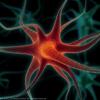I want to transform myself into a genius but I don't want to waste my time pursuing something that isn't possible. We all have the same basic hardware, neurons, so why are some people exceptionally bright (Steve Jobs) while others are incredibily dull (me)? It's easy to imagine that maybe Mr Jobs was like me growing up but somewhere along the line he got his first programming book or computer and spent the next ten years completely absorbed by it. He developed his brain at critical windows of opportunity whereas I never pushed myself to excell at anything and my brain has stopped growing (25). However, I'm still young and I dare to dream!

Can someone with an average IQ become a genius? How or why not?
#1
Posted 13 April 2013 - 06:23 AM
I want to transform myself into a genius but I don't want to waste my time pursuing something that isn't possible. We all have the same basic hardware, neurons, so why are some people exceptionally bright (Steve Jobs) while others are incredibily dull (me)? It's easy to imagine that maybe Mr Jobs was like me growing up but somewhere along the line he got his first programming book or computer and spent the next ten years completely absorbed by it. He developed his brain at critical windows of opportunity whereas I never pushed myself to excell at anything and my brain has stopped growing (25). However, I'm still young and I dare to dream!
#2
Posted 13 April 2013 - 09:43 AM
Jobs did not push/"transform" himself into a genius, nor can you. Everything is genetically decided. Sure, we can do mental exercises to inhibit cognitive decline, but you really can't get "smarter" working out your brain. To get smarter we need to alter our genetics or the neurochemistry as we are trying to do here.
Edited by Megatrone, 13 April 2013 - 09:53 AM.
#3
Posted 13 April 2013 - 02:46 PM
Now, on to your question, to become an expert requires two things; time and passion. There is an idea floating round these days that it requires 10,000 hours of practice to become an expert in any skill, and 20,000 to become a master. This applies not only to obvious things such as physical tasks but also mental ones. Creativity used to be seen as some inborn skill, after all it seems to transcend being taught, so how could it be learnt? Well, it can't... The creative potential is right there within your brain right now. It is the essence of thought itself. In order to manifest it at higher levels, a framework is required within which to employ it (for example, thoery knowledge of a musical instrument, or powers of logic and reason) and also a cooking pot of related experiences or ideas that will be drawn from in the process of creation (other sounds, experiences and emotions or the ideas of those who went before).
The great masters of history started out no different than you and I. Their brains were not different, what was different was how they employed them. For instance, there was a great furore when Einstein died, because now we could peer inside his brain and see what made him tick! Confusingly, nothing out of the ordinary could be identified to distinguish his brain from an 'ordinary' specimen's, in fact his brain was 10% smaller than the average! Granted this was in the days before complex neuroimaging techniques were invented, but on later examination they found some differences, mainly in the thickness of the cortical connection running to and from the associational centres of the brain. So was it the make up of his brain that made him great? Only in so far as by directing his mind in certain ways, with passion, within a framework he had learnt over time, he had developed these cortical centres. See, how you use your brain defines its internal structure over time. This process is called neuroplasticity. Basically, wherever you direct your thoughts and experiences, whatever skills you learn, your brain adapts its micro structures (in the form of axons and dendrites) second-to-second in order to embed them. Skills can include, more generally, ways of thinking. For example, the more you practice visualization the greater your visualization ability becomes. This increases the thickness of the cortical networks within the brain that correspond to these abilities. Crucially, every single brain on the planet can do this.
What differentiates an Einstein from a retarded couch potato was not their neural starting point, but what they did with their brain throughout their life. Now, Einstein may have had a stimulating environment early on, and there are developmental factors that set trajectories throughout your life. But two key things to keep in mind are that 1) These are merely trajectories. Trajectories will continue unless an awareness is cultivated which can intervene to alter the course of the brain. This explains why most people never harness their brains inherent potential to adapt to anything. Most people do not think to think, do not even consider the direction of their thoughts, and are not aware that there are ways to change them. Meditation is key here. You cannot change what you are not aware of. Meditation cultivates awareness. 2) Neuroplasticity continues to occur up until the moment of death in mentally healthy subjects. This means it is never too late. You may never become an Einstein, as Genius is a category beyond the other two, it requires you be in the right place, at the right time, with the right knowledge, in order to initiate a paradigm shift. In that sense Genius is merely a label given by society. But with passion and time, you can become a master. If you're serious about this endeavour I also highly recomend the book Mastery by Robert Greene. In fact this is more important than the book I linked earlier. It lays out the tools to conquer the field you desire. It is by no means an easy path. Simply wanting to be a genius is not enough fuel to get the fire of the intellect raging. It requires absolute curiousity, which leads to a burning passion.
#4
Posted 13 April 2013 - 02:53 PM
#5
Posted 13 April 2013 - 03:28 PM
but you really can't get "smarter" working out your brain. To get smarter we need to alter our genetics or the neurochemistry as we are trying to do here.
I disagree, what would Mozart be if his father wasnt playing him music from birth? Where would Einstein be if he didnt taught playing violin from early age?
#6
Posted 13 April 2013 - 03:48 PM
#7
Posted 13 April 2013 - 04:08 PM
Become a genius? Hum sounds unlikely but probably not impossible
I've noticed that very hard work and increasing my dopaminergic system has boosted my IQ a lot, I was at around 100 and pushed it further to 135-150.
So yes you can definetely become smarter by working a lot, learning intensively, understanding difficult concepts and so on.
I notice that the days after learning a lot I can read faster and understand things faster.
In general dopaminergic supplements can induce a lot of neuroplasticity.
Epigenetics are also a field that sounds interesting.
#8
Posted 13 April 2013 - 04:28 PM
I view it simply: the structure of the brain, decided not only genetics, but also lifestyle, nutrition and a variety of other factors, is the hardware.
The memories encoding ones knowledge, skills and learning are software. Better hardware might be able to run software faster, or more efficiently, but in the end, we all have a great deal of control over our software.
Genetics may give some people better hardware, and more potential, but I believe few people actually realize their potential.
After coming to this conclusion, and spending some time observing people, I feel that I am pretty good at judging if a person is where they are at, intellectually, because of good hardware(genetics/brain structure) or because of a concerted effort to improve their software(memories encapsulating knowledge and heuristics) or a combination of both. Obviously, everybody has some of each, so it's just question of degrees.
Note, any nootropic can only possibly affect your hardware, it's always up to you to make sure your software is sophisticated and up-to-date.
Edited by Deeviant, 13 April 2013 - 05:07 PM.
#9
Posted 13 April 2013 - 05:08 PM
Let's see if there are any case studies in the literature about average intelligence people becoming suddenly miraculously smarter:
This is pretty dubious, and a freak 1 in a million but...:
http://metapoisk.com...hp?newsid=15517
So is perhaps the most famous Russian polyglot Willy Melnikov. At the time of this release mailing it owns more than 100 languages in different countries and peoples, including the very rare or even dead languages, and constantly adds to his collection. Willie incredible ability to study the language have opened a wound of the temporal lobe skull he received in Afghanistan in 1985. Since then, scientists study its amazing possibilities, and Willie is studying more and more new languages.
This is a bad translation, but basically the guy got injured in the head during the Soviet war in Afghanistan and he developed a superhuman ability to learn languages. The guy is only on youtube and there are a few articles in Russian on him, but that's about it.
People who take dopamine stimulating drugs to treat Parkinsons can get outbreaks of creative expression even though the rest of their brain is impaired:
http://psychcentral....ents/50393.html
Bringing together case studies from around the world, she examined the details of each patient to uncover a common underlying factor — all were being treated with either synthetic precursors of dopamine or dopamine receptor agonists. These drug regimens increase the amount of dopamine activity in the brain by stimulating receptors.
...
Cases include an architect who began to draw and paint human figures after treatment, and a patient who, after treatment, became a prize-winning poet though he had never been involved in the arts before.
That's about it,and the first example is a bit dubious. I may figure out how to do this eventually though in one of my threads....
#10
Posted 13 April 2013 - 05:19 PM
A lot of wild shots in the dark, in this thread.
I view it simply: the structure of the brain, decided not only genetics, but also lifestyle, nutrition and a variety of other factors, is the hardware.
The memories encoding ones knowledge, skills and learning are software. Better hardware might be able to run software faster, or more efficiently, but in the end, we all have a great deal of control over our software.
Genetics may give some people better hardware, and more potential, but I believe few people actually realize their potential.
This model needs updating; the brain is not analogous to a computer in the sense described here. There can be no distinction made between hardware and software... everything is encoded by altering the structure of the brain itself. There is no hard, or software... it's more like jelly-ware :P Structurally sound but also malleable. It dances on the brink of chaos, on the thin line between dysfunction and evolution.
To extend your analogy, the software (knowledge, skills and learning) controls and directs the hardware. What you think, what you experience is literally translated into the physical matter of your brain. The more thoughts or skills of a type you have, the more proficient you become at something, these adaptations aren't simply printed on the passive medium of your brain like installing a program on your computer. Rather they alter the underlying networks to allow even greater advances within that area of understanding/ability. It's as if you began with ms paint, and as you became more skilled at it and pushed its limitations repeatedly over time it automatically upgrades to better and better drawing software, until you arrive at some highly advanced version of photoshop. It literally adapts to the input you give it.
In that sense we have even greater freedom than just being able to control the software!
#11
Posted 13 April 2013 - 06:26 PM
Edited by arjacent, 13 April 2013 - 06:27 PM.
#13
Posted 13 April 2013 - 06:54 PM
Genius is determined by the content of your mind, not the chemical content of your brain.
Edited by OpaqueMind, 13 April 2013 - 06:56 PM.
#14
Posted 13 April 2013 - 07:02 PM
I second that, hard work is what will help you become more intelligent. Chemicals won't make you instantly extremely smarter, they can help you but they're always a mean not an end.It seems that some people seem to be forgetting that intelligence isn't just a function of certain quanitifiable parameters of the brain, such as short-term memory span, speed of reading or depth of memory. By far the most important variable in the equation of intelligence is your knowledge bank, and what you can do with it! Hard work and clever study habits can cover both of these! Don't fall into the trap of only trying to improve yourself via direct chemical methods, that will only get you a short way. It is merely an augmentation, not the main show!
Genius is determined by the content of your mind, not the chemical content of your brain.
#15
Posted 13 April 2013 - 07:27 PM
Edited by Megatrone, 13 April 2013 - 07:29 PM.
#16
Posted 13 April 2013 - 07:40 PM
Ad hominem attacks on the other hand are pretty childish...
#17
Posted 13 April 2013 - 08:14 PM
It's not, I was truly dumber before and that was because my serotonergic system was too active while my dopaminergic system was very low. I was extremely lethargic near to CFS.I agree as some of you have stated, that hard work should be the foundation. BUT come on guys! Don't fool yourselves into believing that dedication will make you a genius. It doesn't matter how much you want something, if you don't have the optimal genetics. A person with an IQ of 100 can be the hardest working guy on the planet, but still he won't ever be able to achieve a PhD in physics. No way on earth renfr that you can "push" your IQ from 100 to 150. That's just childish...
Before when my IQ was 100 I was sometimes even giving random answers to difficult questions or answers I'm not totally sure of.
When I did one again not only I was able to decode the mechanism to solve the problem but also I was able to give a firm answer therefore I don't find it surprising if it jumped by 30 or even 50.
Saying they will never is really a blunt answer, how can you know that? I know people who were pretty dumb but managed to make something out of their lives be it become a successful entrepreneur or get his degree.
Besides gene therapy might change it all, people with organic brain syndrome or traumatic brain injury could recover their function very fastly just by changing a subset of genes.
I don't know if online IQ tests can give us an answer near to reality (I know there are some serious ones) but I remember doing them and be around 95-105, I have found a website which seems serious and has 10 IQ tests all with random questions each time so I will try it out when I got the time.
http://www.iq-test.com
Dunno about this one, it looks legit and apparently you can get in their society if you score more than 126 so it might be kinda reliable.
I tried their free short IQ test and it says :
Your IQ score lies within a range of 123 up to
139
.
Edited by renfr, 13 April 2013 - 08:24 PM.
#18
Posted 13 April 2013 - 08:30 PM
It's not, I was truly dumber before and that was because my serotonergic system was too active while my dopaminergic system was very low. I was extremely lethargic near to CFS.I agree as some of you have stated, that hard work should be the foundation. BUT come on guys! Don't fool yourselves into believing that dedication will make you a genius. It doesn't matter how much you want something, if you don't have the optimal genetics. A person with an IQ of 100 can be the hardest working guy on the planet, but still he won't ever be able to achieve a PhD in physics. No way on earth renfr that you can "push" your IQ from 100 to 150. That's just childish...
Before when my IQ was 100 I was sometimes even giving random answers to difficult questions or answers I'm not totally sure of.
When I did one again not only I was able to decode the mechanism to solve the problem but also I was able to give a firm answer therefore I don't find it surprising if it jumped by 30 or even 50.
Saying they will never is really a blunt answer, how can you know that? I know people who were pretty dumb but managed to make something out of their lives be it become a successful entrepreneur or get his degree.
Besides gene therapy might change it all, people with organic brain syndrome or traumatic brain injury could recover their function very fastly just by changing a subset of genes.
I don't know if online IQ tests can give us an answer near to reality (I know there are some serious ones) but I remember doing them and be around 95-105, I have found a website which seems serious and has 10 IQ tests all with random questions each time so I will try it out when I got the time.
You fail to realize the difference between 100 and 150. The difference between the two are just insane! Just from what you've written thus far, I can see that you don't have an IQ of 150. How? By looking at your grammar, vocabulary and content. People with that high IQ are masters in grammar and formulating sentences.
#19
Posted 13 April 2013 - 08:36 PM
"The road to Eleusis" is coming to my mind as the only possibility, quite a risky one though. Here in LongeCity there are plenty of people suffering from depression or being bipolar who could tell you the benefits of a healthy brain. Until there are safer methods keep improving in the traditional way. IMHO.
#20
Posted 13 April 2013 - 08:39 PM
I don't think you can judge me from my english knowing that this isn't even my native language! I don't even study english anymore, the only kind of english I get to read if from talking with people in english or reading a newspaper, there isn't much place to high quality and well formed grammar.It's not, I was truly dumber before and that was because my serotonergic system was too active while my dopaminergic system was very low. I was extremely lethargic near to CFS.I agree as some of you have stated, that hard work should be the foundation. BUT come on guys! Don't fool yourselves into believing that dedication will make you a genius. It doesn't matter how much you want something, if you don't have the optimal genetics. A person with an IQ of 100 can be the hardest working guy on the planet, but still he won't ever be able to achieve a PhD in physics. No way on earth renfr that you can "push" your IQ from 100 to 150. That's just childish...
Before when my IQ was 100 I was sometimes even giving random answers to difficult questions or answers I'm not totally sure of.
When I did one again not only I was able to decode the mechanism to solve the problem but also I was able to give a firm answer therefore I don't find it surprising if it jumped by 30 or even 50.
Saying they will never is really a blunt answer, how can you know that? I know people who were pretty dumb but managed to make something out of their lives be it become a successful entrepreneur or get his degree.
Besides gene therapy might change it all, people with organic brain syndrome or traumatic brain injury could recover their function very fastly just by changing a subset of genes.
I don't know if online IQ tests can give us an answer near to reality (I know there are some serious ones) but I remember doing them and be around 95-105, I have found a website which seems serious and has 10 IQ tests all with random questions each time so I will try it out when I got the time.
You fail to realize the difference between 100 and 150. The difference between the two are just insane! Just from what you've written thus far, I can see that you don't have an IQ of 150. How? By looking at your grammar, vocabulary and content. People with that high IQ are masters in grammar and formulating sentences.
I don't consider myself a genius at all, before being a genius you need to learn, it's true I don't read much books where grammar is particularly complex hence it is impossible from me to invent out of the box existing words or sentences...
You can score high on IQ and yet be unable to solve a complex physics problem for the sole reason that you have never studied physics.
Look at the highest IQ in the world, Marylin Vos Savant, she isn't a genius at all and most of her reflexions on logical problems are controversed and countered by the scientific community...
Edited by renfr, 13 April 2013 - 08:40 PM.
#21
Posted 13 April 2013 - 09:04 PM
not really, knowledge is not necessary for intelligence; in fact intelligence is by definition (well, various definitions) ability to solve new, unseen problems; abstract reasoning and so on. most definitions are talking about ability that is not dependent on acquired knowledge.It seems that some people seem to be forgetting that intelligence isn't just a function of certain quanitifiable parameters of the brain, such as short-term memory span, speed of reading or depth of memory. By far the most important variable in the equation of intelligence is your knowledge bank, and what you can do with it! Hard work and clever study habits can cover both of these! Don't fall into the trap of only trying to improve yourself via direct chemical methods, that will only get you a short way. It is merely an augmentation, not the main show!
Genius is determined by the content of your mind, not the chemical content of your brain.
however, if we're talking about genius, knowledge is important. if i try to oversimplify I'd put it like this: genius = creativity + intelligence + knowledge + motivation (which is needed for gaining knowledge and training) or like Edison said it: 99 % perspiration, 1 % inspiration. abilities, creativity and personality are somewhat dependent on genes, partially on environment. If you train a lot, like playing an instrument from young age you can actually increase your intelligence. Like OpaqueMind said it: by this you are also changing your hardware (well, I don't really like "computer metaphor" because it is basically incorrect; better view is "embodied cognition").
Intelligence is something different that being a genius. Intelligent people aren't necessary creative (there is no correlation between IQ and creativity above IQ of 120) and motivated for studying. Intelligence is just a potential - if you don't invest it, it won't serve you. But if you really want you can do amazing things - after 10000 hours or more (it's easier if you start in childhood). You probably won't become a genius like Mozart or Einstein but you can become really smart and successful.
But there is one question left regarding this: do you really want to become a genius? Do you really want to spend 10000 hours doing something just to become a genius? Your motivation and goal are stupid (I don't know how to say it other way). You will not become a genius because exactly because this is your goal. A goal of a true genius isn't to become a genius, it is play, inner motivation, enjoyment at whatever he/she's doing. Becoming genius is just a by product.
If I were you, instead of trying to become a genius I'd try to become less narcissistic (think about what's your actual reason to become a genius).
#22
Posted 13 April 2013 - 09:18 PM
I agree as some of you have stated, that hard work should be the foundation. BUT come on guys! Don't fool yourselves into believing that dedication will make you a genius. It doesn't matter how much you want something, if you don't have the optimal genetics. A person with an IQ of 100 can be the hardest working guy on the planet, but still he won't ever be able to achieve a PhD in physics. No way on earth renfr that you can "push" your IQ from 100 to 150. That's just childish...
Isnt it that purpose justifies the means? If you want something, the environment of your body will adapt. As it applies with physical exercises, the same rules goes for your mind. The only difference is level of consciousness.. The brain itself is geniue machine.. but for most of us on unconscious level. Einstein himself used sleep as a tool for resolving a lot of problems. Again, the difference is that he had a purpose, he wanted to know the answer. Its fool to believe that you will get something without a clear motive. Autists who have extraordinary abilities seems to be ultrafocused on what they are doing, so there is very strong motive again.
I believe its very dependent on dopamine function and its within reach of everybody to be a genius. Theres numerous evedinces of brain injuries to bring super abilities, so why we, as the entity with all the resources already within arent capable of transforming it on our own will? The answer is again level of consciousness..
So I emphasize its important to know why you want to become super intelligent. Do you want to bring something better into this world? So find out what it is and then the ways how to accomplish that will follow.. The autist guy who can draw whole city from just one look or other whose brain is fast as computer on calculations isnt doing it because he want to show off, he just enjoys it or his brain in some way enjoys the process and then he has full access to these informations.
EDIT: very nicely and similarly described in previous post
Edited by Psionic, 13 April 2013 - 09:23 PM.
#23
Posted 13 April 2013 - 09:21 PM
#24
Posted 13 April 2013 - 09:28 PM
#25
Posted 13 April 2013 - 09:34 PM
#26
Posted 13 April 2013 - 09:42 PM
I've noticed that very hard work and increasing my dopaminergic system has boosted my IQ a lot, I was at around 100 and pushed it further to 135-150.
What an absolute load of horseshit.
#27
Posted 13 April 2013 - 09:43 PM
Oh you mad because your lies were exposed? Go away troll.I've noticed that very hard work and increasing my dopaminergic system has boosted my IQ a lot, I was at around 100 and pushed it further to 135-150.
What an absolute load of horseshit.
And please do not reply here, do it through PMs there's no need to pollute this thread with private issues.
Edited by renfr, 13 April 2013 - 09:48 PM.
#28
Posted 13 April 2013 - 11:25 PM
#29
Posted 13 April 2013 - 11:32 PM
#30
Posted 13 April 2013 - 11:51 PM
To reiterate, complete horseshit. You cannot raise your IQ from 100 to 150. I would recognize someone with that level of intelligence by their sentence structure. Your IQ is largely fixed for life. That is blunt. And it is the truth. Binary logic. The only exception to this is if you suffer from a psychological condition which masks your true intelligence by diverting your attention or impairing your memory.It's not, I was truly dumber before and that was because my serotonergic system was too active while my dopaminergic system was very low. I was extremely lethargic near to CFS.I agree as some of you have stated, that hard work should be the foundation. BUT come on guys! Don't fool yourselves into believing that dedication will make you a genius. It doesn't matter how much you want something, if you don't have the optimal genetics. A person with an IQ of 100 can be the hardest working guy on the planet, but still he won't ever be able to achieve a PhD in physics. No way on earth renfr that you can "push" your IQ from 100 to 150. That's just childish...
Before when my IQ was 100 I was sometimes even giving random answers to difficult questions or answers I'm not totally sure of.
When I did one again not only I was able to decode the mechanism to solve the problem but also I was able to give a firm answer therefore I don't find it surprising if it jumped by 30 or even 50.
Saying they will never is really a blunt answer, how can you know that? I know people who were pretty dumb but managed to make something out of their lives be it become a successful entrepreneur or get his degree.
Besides gene therapy might change it all, people with organic brain syndrome or traumatic brain injury could recover their function very fastly just by changing a subset of genes.
I don't know if online IQ tests can give us an answer near to reality (I know there are some serious ones) but I remember doing them and be around 95-105, I have found a website which seems serious and has 10 IQ tests all with random questions each time so I will try it out when I got the time.
Think of the brain as a muscle. Like a muscle, training it improves it with time by the formation of more efficient synapses. But as anyone at the gym knows, some people are just naturally bigger and achieve greater gains. Others hit a limit determined by genetics. So too it is with intelligence. It's good to think of people as being born with a natural range. You need to practice to utilize the upper end of this range. But you will never surpass someone who is naturally gifted or is a genius.
I think it needs to be said that genius is a subjective term. But going by the OPs definition, the academic one currently accepted by psychometrics, I think we are talking about high IQ. With a high IQ comes an increased ability to problem solve, better acquisition of facts, and more mental stamina. This ability is largely innate and can only marginally be improved (I would guess 10 points at most) by extensive supplementation and learning. You have to accept hereditary limitations so that if you are not gifted chances are you never will be. This should not be confused with achievement. You do not need a super high IQ to make a mark on the world. Always aim to reach your potential as you never know where that is.
Also tagged with one or more of these keywords: genius
Science & Health →
Supplements →
The Perfect StackStarted by William Bell , 29 Jul 2014 |
|

|
||
Science & Health →
Brain Health →
What should I change from my regime?Started by William Bell , 26 Jul 2014 |
|

|
||
Science & Health →
Supplements →
Regimens →
Critique my regimen!Started by bugme , 29 Jun 2014 |
|

|
||
Round Table Discussion →
Humanities →
Immortalism →
What if I told you a drug like NZT-48* exists today?Started by Absent , 13 Oct 2013 |
|

|
||
Science & Health →
Brain Health →
How to become a genius?Started by The Immortalist , 24 Feb 2012 |
|

|
1 user(s) are reading this topic
0 members, 1 guests, 0 anonymous users





















































